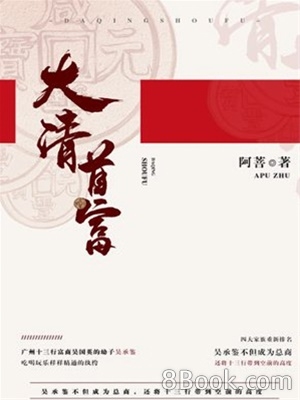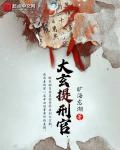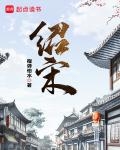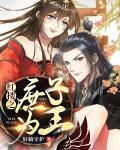Chapter 231: The Manchus and the Han attack from the north and south (V)
Ming ships came to trade again. Except for the general who pretended not to know, the news quickly spread among the upper class in Edo.
Trade with the Ming Dynasty has never been a difficult matter, and Japan has always welcomed trade with the Ming Dynasty. After the Qing Dynasty destroyed the Ming Dynasty, the total volume of Japan's "Tang Ship Trade" dropped sharply, and the types of trade dropped even more sharply. The two-day drunk brought by the Ming Dynasty fleet this time made many Japanese upper class salivate.
The good wine that had not been drunk for 70 years was finally going to be supplied again. The Japanese upper class was delighted.
Of course, this was also a mistake made by the Japanese. They had never drunk a 50% alcohol liquor. Moreover, what Huo Chong sent for the transaction was absinthe. In addition to the alcohol content, the plant ingredients in it strictly followed the "holy trinity" ingredients of traditional absinthe, namely anise, fennel and wormwood.
These three plants are all cheap, but they are all rich in lipids and can be considered spices in a sense.
However, the Japanese upper class had to face a difficult situation. This Ming fleet was obviously here to seek justice. According to them, the Japanese Nagasaki Bugyo fired at the Ming fleet. These Ming people wanted to ask the general for justice.
Once the Ming fleet representatives met the general, it meant that someone had to be held responsible for this matter. After all, the other party was the Nagasaki Bugyo, and the general obviously did not want the Nagasaki Bugyo to commit seppuku to apologize for this matter.
After discussion, the elders here put forward a view. If Japan sent a navy to annihilate the Ming fleet, who would know that the Ming ships had been there in this vast ocean? The Ming Dynasty also didn't know where their ships had been.
This proposal received support from many high-ranking officials. Even those who disagreed only believed that Ming ships should be captured.
After the leaders came up with this radical solution, some asked who should take on the responsibility of implementing it. Then everyone found that no one, including themselves, showed even the slightest willingness to take on this responsibility.
Every boss also knew that the reason why they agreed to that radical measure was because the Ming fleet looked very isolated and it felt that attacking them would not cause any consequences. More importantly, it was because attacking the Ming fleet would not cause any internal changes in Japan.
If you don't cause change, you won't have any responsibilities. If you don't have to take responsibility, you won't lose anything.
Agreeing to attack the Ming fleet and never assuming the command of the military operations to attack the Ming fleet were both for the purpose of achieving this goal.
In the end, nothing was accomplished and the bosses could only leave the matter alone.
The Han fleet has always focused its attention on the port of Edo, but found that the port of Edo did not respond at all, as if the Han fleet did not exist at all.
This sparked a discussion. Even someone like Umegan who didn't care about fighting was a bit helpless. Someone did suggest attacking Edo Port to let the Japanese know how powerful they were.
However, the Han army was an army of good families, and the reason why the person who made this suggestion dared to say so was because there was indeed such a suggestion in the response manual. This was all the motivation that supported this brother to muster up the courage.
The speaker made the suggestion, so naturally the others objected. The matter just passed.
After waiting for a few more days, ships appeared on the sea. They looked like several large ships, much larger than the Han fleet.
When they could see the ship's flag clearly, the hired Spanish sailors on board shouted: "That's a Dutch ship!"
"Dutch ship?" Mei Qian had heard of it, but this was the first time he saw it.
The Spanish sailors had already shouted: "Sir, they must be coming to fight us, please give the order to prepare for battle!"
Mei Qian didn't quite agree with such an arbitrary statement. However, being alone at sea, he couldn't just ignore the words. After the order was given, the Han fleet immediately began to prepare.
Soon, two three-masted ships appeared in front of the Han fleet. The closer the ships got, the clearer they could see. Through the telescope, the towering masts, dense made the Han navy nervous and excited.
Feng Yukuan was not originally a combatant, so he was assigned to a safer position. Now Feng Yukuan also ran up to the deck, looked carefully at the two large ships, and couldn't help but exclaimed: "They are really big!"
Before he could finish his words, he saw that the windows on both sides of the opponent's ship seemed to be pulled down, revealing square gaps.
When the other side made such a move, the Han army knew that things were just as the Spanish sailors said, and battle was inevitable.
Mei Qian shouted, "Raise the battle flag! Prepare for battle!"
The signal flag on the flagship was raised, and the flags on other warships also raised their signal flags. Although the number of gun positions was not as many as the Portuguese ships, the muzzle shields on the Han warships were also pulled down.
The most important thing is that the ten-jin cannons on the bows of the three warships are all ready.
It was the first time that Mei Qian used chain bullets in his life, and his voice was shaking when he gave the order. The gunners didn't care about the shells. They lacked experience in naval artillery battles and were a little uneasy about everything.
Seeing that the enemy was within range, Mei Qian gave an order and the cannons on the flagship opened fire.
Chain bombs are a common type of artillery shells at sea. Two iron balls are connected by an iron chain that is probably no longer than two meters. The target is not people, but the sails of the enemy ship.
The enemy's sails and even masts are no match for the power of chain bullets. If you can destroy one of them, you can disable the enemy's ship. Then you can fire around the enemy and see which lucky shells hit the enemy ship and finally sink it.
But this thing depends on luck after all. The three ships fired a chain bullet each, but none of them hit the target. Even with the best luck, the chain bullet that spun like a windmill still had to travel more than ten meters to hit the Dutch sail.
There was nothing we could do but continue firing. But we never expected that the Dutch fleet would just make a detour and run away.
The skilled driving skills stunned the Han navy personnel. They could not understand what had happened to allow such a huge ship to have such maneuverability.
However, on the Dutch ship, the fleet commander, Commodore Maximi, saw that the Han warships did not pursue them, and he cursed with lingering fear: "Those people in the shogunate dared to deceive us. They said that the people on those ships were Chinese!"
At this point, Brigadier General Maximi was so angry that he simply cursed in Japanese: "Their conscience... is so bad!"
The other crew members on the ship also nodded. No wonder Commodore Maximilian was angry. As soon as the enemy's chain bullets came out, the Dutch knew something was wrong. This was a European method of warfare, not an Asian tactic.






